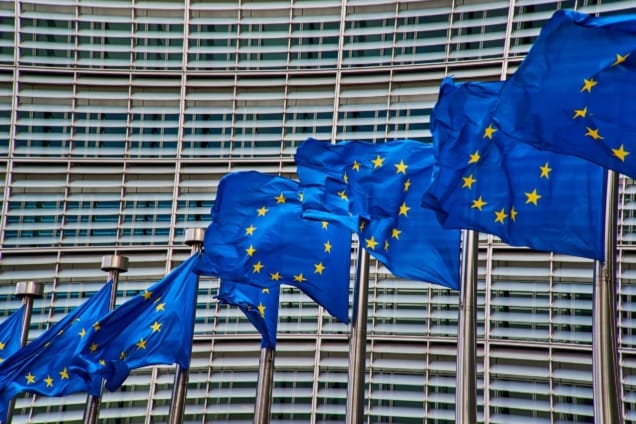European Union leaders agreed on Thursday to use all their leverage, including trade, development aid and visa policy, to speed up returns of migrants illegally entering the bloc and asked the European Commission to urgently draft a law.
Immigration is a highly sensitive topic in most of the bloc’s 27 member states, even though irregular migrants arriving in Europe last year were a third of the 1 million seen during the crisis in 2015, and numbers fell further this year.
Leaky external EU borders are destroying the EU’s Schengen passport-free travel area, fuelling the rise of far-right parties and affecting election results across Europe, making migration a key political problem.
The European Council calls for determined action at all levels to facilitate, increase and speed up returns from the European Union using all relevant EU policies instruments and tools, including diplomacy, development, trade and visas, the leaders said in written conclusions of their meeting.
Out of 484,000 non-EU citizens ordered to leave the EU last year, only 20% returned home. European Commission President Ursula von der Leyen said the Commission was working to improve this number and would soon present a law to deal with it.
EU LEADERS BACK POLAND AGAINST MIGRATION ‘HYBRID ATTACK’
The leaders also supported Poland in its plan to temporarily suspend accepting asylum applications from migrants pushed across the country’s eastern border by Belarus and Russia.
While many non-governmental organisations say the decision to refuse asylum applications is a violation of the EU’s charter of fundamental rights, von der Leyen said it was legal as a temporary response to a hybrid attack by Minsk and Moscow.
Russia and Belarus…cannot be allowed to abuse our values, including the right to asylum, and to undermine our democracies, EU leaders said in the conclusions. The European Council expresses solidarity with Poland. … Exceptional situations require appropriate measures.
In July Finland, which faced a similar challenge from migrants pushed through its border with Russia, also suspended accepting asylum applications.
EU leaders also discussed setting up “return hubs” in countries outside the EU, where migrants whose EU asylum bids were refused could await deportation to their home country, providing it was safe to return them there.
Von der Leyen said the discussion on how to organise such hubs was still in progress to establish what third country could be considered safe, how long a migrant could be kept in a hub and what to do if a return to the home country was not possible.
The right-wing government of Italy has already set up such a “return hub” in Albania, and the conservative Dutch government is considering sending rejected African asylum seekers to Uganda.
Not all leaders were enthusiastic about the idea.
German Chancellor Olaf Scholz said that for a country as big as Germany, asylum processing hubs outside the bloc would only be able to handle a fraction of requests and that a law on fast returns would be more helpful.
Scholz and other leaders also stressed the EU badly needed migrants as the EU population ages and pay-as-you-go pensions systems come under increasing strain.
Spanish Socialist Prime Minister Pedro Sanchez said migration was a positive phenomenon and something that Spain and other European economies desperately needed to prop up ailing birth rates and their welfare states.
Do we want a prosperous and therefore open Europe, or do we want a poor and therefore closed Europe? Sanchez said.
We need to address the migration phenomenon with future generations in mind, not the next elections.






